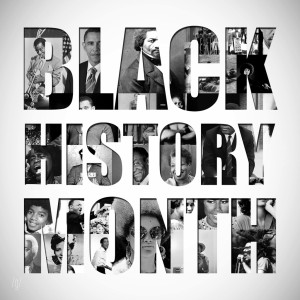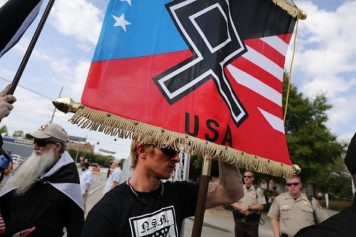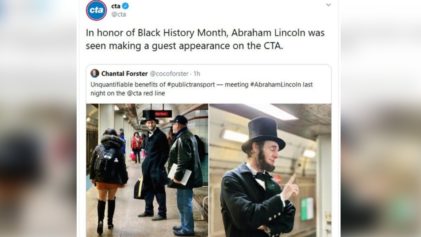As the nation celebrates Black History Month, America has much work to do, and a long way to go in doing right by Black people and bringing true equality to a nation that preaches it, yet never has known it. In his Black History Month proclamation, President Obama alluded to the challenges and obstacles facing Black people in America, and the factors which prevent the U.S. from realizing its ideals.
“America’s greatness is a testament to generations of courageous individuals who, in the face of uncomfortable truths, accepted that the work of perfecting our nation is unending and strived to expand the reach of freedom to all,” the president said. “For too long, our most basic liberties had been denied to African-Americans, and today, we pay tribute to countless good-hearted citizens — along the Underground Railroad, aboard a bus in Alabama, and all across our country — who stood up and sat in to help right the wrongs of our past and extend the promise of America to all our people.”
The president noted that during this month, America recognizes the contributions of African-Americans since the country’s beginning, and sacrifices made by “these champions of justice,” adding that the nation must “recommit to reaching for a day when no person is judged by anything but the content of their character.”
In his proclamation, President Obama pointed to signs of progress, including Black high school graduation and college enrollment rates being at an all-time high. Further, Black unemployment has halved since the Great Recession, and 2 million African-Americans have received health insurance under Obamacare. In addition, incarceration rates have fallen for Black men and women.
“Yet challenges persist and obstacles still stand in the way of becoming the country envisioned at our founding, and we would do a disservice to all who came before us if we remained blind to the way past injustices shape the present,” he noted.
To his credit, and highlighting the need for reform of the criminal justice system to make it fair and just, Obama mentioned that the U.S. has 5 percent of the world’s population and a quarter of its prisoners, who are disproportionately Black.
To put the problem of America’s racialized justice system into perspective, consider that the U.S. has a population of 319 million, and over 2.3 million people behind bars. There are 18.5 million Black men in the U.S., according to census data, and 745,000 Black men in state and federal prisons and local jails, according to the Bureau of Justice Statistics’ National Prisoner Statistics Program. India, with a population of 1.2 billion, has only 380,000 prisoners. Further, as attorney Antonio Moore wrote in The Huffington Post, there are more African-American men in prison here than there are prisoners in the countries of India, Argentina, Canada, Lebanon, Japan, Germany, Finland, Israel and England combined.
The New York Times reported last year that for every 100 Black women not incarcerated, there are only 83 Black men, meaning there are 1.5 million missing Black men. These men are missing either due to early death and prison, a gender gap not seen in the white community. In New York, 120,000 Black men between the ages of 25 and 54 are missing, as are 45,000 in Chicago and over 30,000 in Philadelphia. The largest gap is in Ferguson, Missouri, with 40 missing Black men for every 100 Black women. And North Charleston, South Carolina — with 25 missing Black men for every 100 women — has a rate worse than 75 percent of cities.
African-Americans are incarcerated at six times the rate of whites, according to the NAACP. Further, Blacks comprise 26 percent of juvenile arrests, 44 percent of detained youth, 46 percent of juveniles who are judicially waived to criminal court, and 58 percent of youth admitted to state prisons, according to the Center on Juvenile and Criminal Justice.
Moreover, Blacks continue to suffer from the among the highest levels of poverty. A 2013 Census report found the African-American poverty rate was 25.8 percent, second only to Native Americans at 27 percent. Meanwhile, the white poverty rate was 11.6 percent, and among Latinos, poverty ranged from 16.2 percent for Cubans to 26.3 percent for Dominicans. And Black children suffer from the highest levels of childhood poverty at 38.2 percent, compared to 35 percent of Latinos, 13.6 percent of Asians, and 12.4 percent of white children, according to the National Poverty Center.
Meanwhile, the racial wealth gap — the difference in net worth between whites and Blacks — has only increased since the Great Recession, when Blacks and Latinos were victimized by discrimination in the subprime mortgage scandal and lost their homes. In 2013, the wealth of white households was 13 times the median wealth of Black households, as opposed to eight times in 2010, according to Pew Research Center analysis of Federal Reserve data. Similarly, during that time period the gap between white wealth and Hispanic wealth increased from a factor of nine to a factor of 10. During that recession, Blacks and Latinos lost historic amounts of wealth. According to the Urban Institute, Latino families lost 44 percent of their wealth between 2007 and 2010, Black families 31 percent, and white families only 11 percent.
The state of Black people in America is an ongoing crisis that racism and white supremacy created, a result of theft, violence and chicanery. For all of the hard work, determination and perseverance of Black people, all of the bootstraps in the world cannot overcome the ongoing role of institutional racism, a shell game and Ponzi scheme maintained by white-skin privilege. Therefore, the responsibility for equalizing America should not fall on the backs of its victims who still wear the badge of slavery, but rather those who have reaped and continue to enjoy the benefits of Black oppression. Happy Black History Month.



